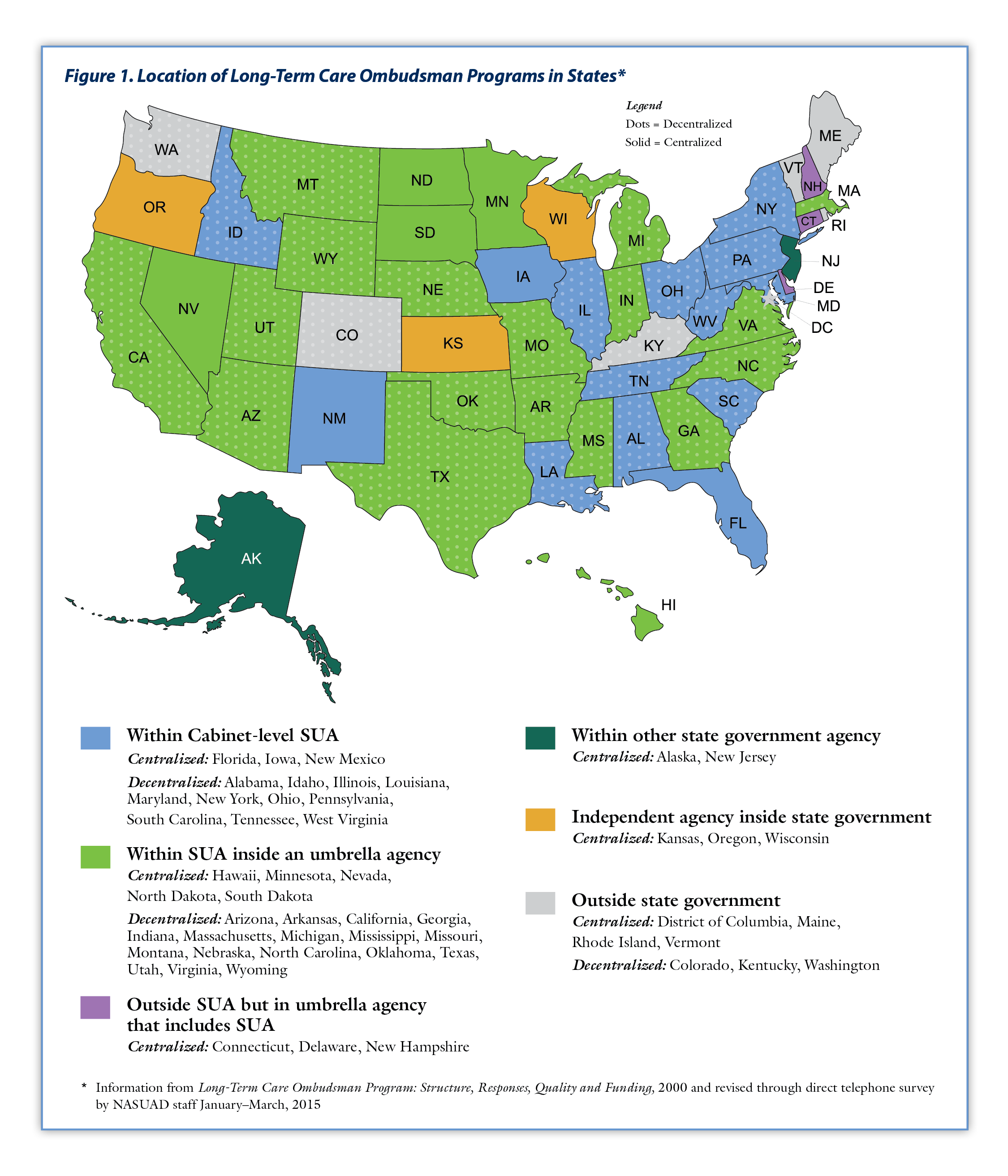Long-Term Care Ombudsman Program

The Long-Term Care (LTC) Ombudsman Program serves as a supporter and resource for older adults who reside in long-term care facilities such as nursing homes, assisted living, and board & care homes. Ombudsmen help residents and their families understand and exercise their rights to quality of care and quality of life. The program supports residents at both the individual and systems levels by receiving, investigating, and resolving complaints made by or on behalf of residents, promoting the development of resident and family councils, and informing governmental agencies, providers, and the general public about issues and concerns impacting residents of long-term care facilities.
Under the Older Americans Act, each state is required to establish an Office of the State Long-Term Care Ombudsman. Each state organizes and operates the program in the way that best serves the needs of its residents. Most of the state ombudsman programs are administratively housed within the State Unit on Aging and provide public support services through a network of local or regional staff and volunteers. Other LTC Ombudsman programs are housed in other state agencies or are contracted outside of state government.

